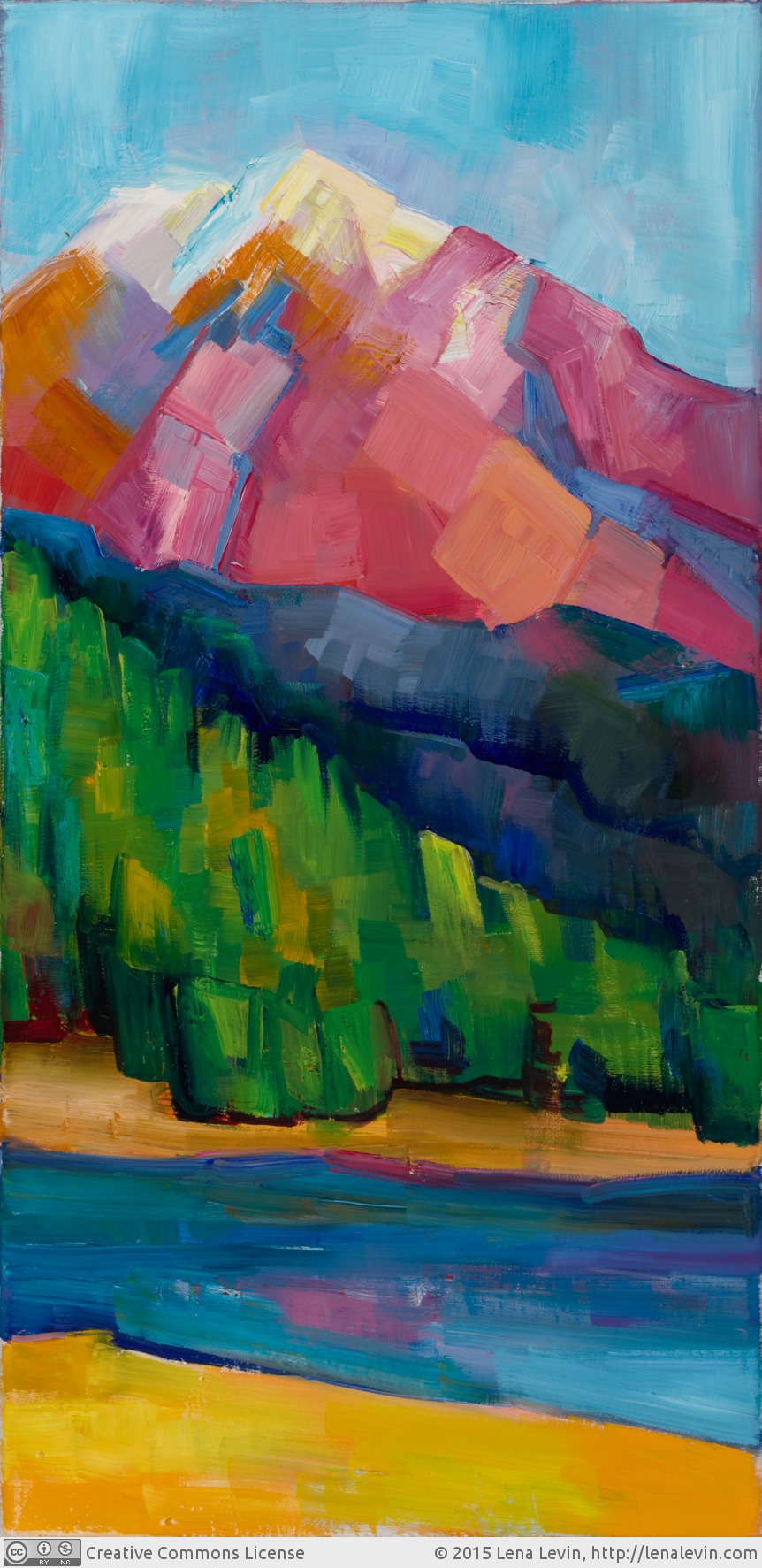I dreamt of standing on a street, and a huge truck passing by. Something happened, like a bump on the road, and the truck’s rear doors flew open just in front of me. Behind them, the whole back of the truck’s load was covered with paintings. My paintings, specifically: some I recognised clearly, others seemed less familiar, but I knew they were all mine. Mostly landscapes (I include some of those I recall as illustrations).

As the doors opened, all these paintings — a couple dozens of them — fell onto the ground in a messy heap. The truck stopped, and two or three guys went round to see what happened. I asked them why these paintings were there, unpacked, not even fastened to anything. They explained that the paintings used to be the packaging material for some precious musical instrument. They were not needed for that purpose anymore, but “these are kind of good, too”, he said (I remember this turn of phrase), so they didn’t want to throw them away. I know, I said, because they are mine.
And so I ask them to leave the paintings with me: after all, it can hardly be a random accident that this mishap happened right in front of me, can it? They hesitate, but then agree and leave. Standing there, wondering what to do with the paintings now, I woke up.

I read recently that dreams show us “in the third person”, as something “out there”, things that we don’t want to acknowledge and accept “in the first person”, as a part of our own inner space. If so, then it is really me — not the cold world out there — who thinks of them as just some packing material for a musical instrument. And the musical instrument? Is it me, too? Or something precious in myself that I hide with paintings from the cold outer world? Do my paintings cover, conceal something (rather than reveal)? Is there a difference?
I don’t know why, but this dream reminded me of a quote from Maria Mitchell’s “A life in journals and letters” I came across a couple of days ago on “Brain Pickings”:
“Who judges a work of art and sees only with his own eyes? Who listens to a lecture and hears only with his own ears? We turn aslant as we stand before the picture to see what good judges are looking. We open the guide book to see what we ought to admire…. Insensibly our judgment is inspired by that of those around us. It is not a weakness to be deplored. We were more than conceited did we rate ourselves so much above the rest of the world that we needed no outward aids to judgment. We were born dependent, our happiness is in the hands of others. Our character is molded by them and receives its coloring from them as much as our feeling relates the parental impress.”
I remember the time when I would have read this nodding my head in agreement. People who would proudly proclaim their independence of others’ judgements seemed to me simply unconscious of their own dependencies, while the most brilliant and independent people I knew were, just like Maria Mitchell, very much aware of them.

It is indeed not a weakness to rely on “outward aids to judgement”, and especially for knowledge (as when we open a guide book in an unfamiliar city). But there is a weakness here, and it is in the very compulsion to judge. As we stand before a picture, there is no need to judge. So there is no need to look away from the picture, so that the only thing we see is not the picture itself, but the opinion of “good judges”.
And now that I have written this, I finally understand why this memory resonates with the dream. There was a judgement on my paintings in the dream: they are “kind of good”. And it is, quite evidently, my own judgement; and, for me, “kind of good” is not good enough.